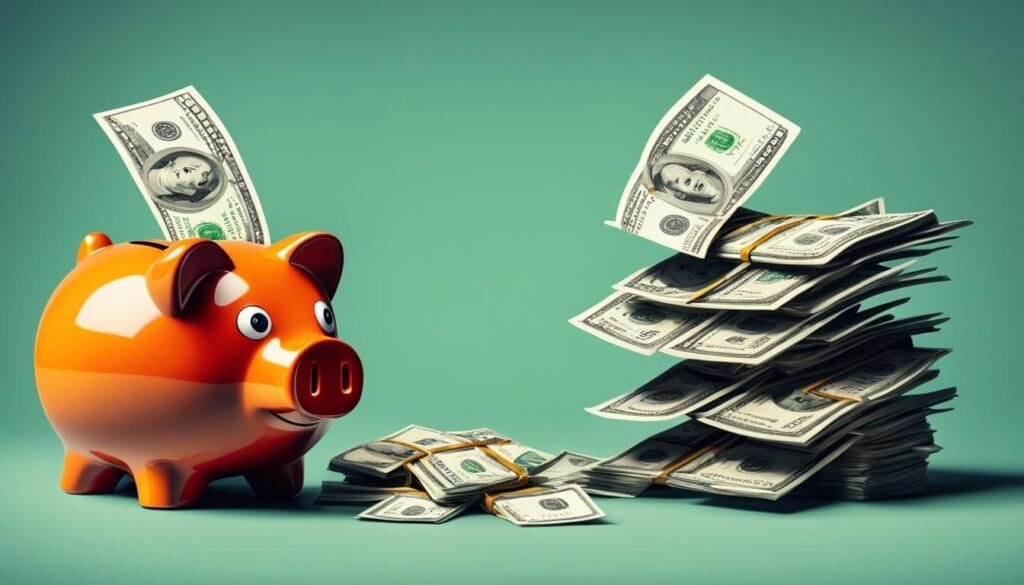Flash sales have become a popular phenomenon in the world of online shopping. These time-sensitive discount events promise exciting bargains and deals that are hard to resist. However, what many consumers fail to realize is the potential impact these flash sales can have on their finances and overall consumer debt.
The allure of flash sales lies in the excitement of snagging a great deal within a limited timeframe. The quick nature of these events taps into our desire for instant gratification and can lead to impulsive purchases. Unfortunately, this impulsive spending can quickly add up, leaving consumers with a significant amount of debt.
It’s important to approach flash sales with caution and shop smart. While the temptation to participate in these discount events is understandable, it’s crucial to evaluate whether the purchase is a genuine need or simply a desire fueled by the excitement of the sale. By being mindful of our spending habits and considering the long-term financial implications, we can avoid falling into the trap of accumulating debt through flash sales.
Key Takeaways:
- Flash sales can lead to impulsive spending and consumer debt.
- Shop smart by evaluating whether a purchase is a genuine need or a desire influenced by the sale.
- Be mindful of your spending habits and consider the long-term financial implications.
- Avoid accumulating debt by setting a budget and sticking to it during flash sales.
- Prioritize financial stability and avoid the allure of a quick bargain that may result in long-term consequences.
The Allure of Bargains and Discounts
Flash sales often tap into our desire for a good deal. The limited-time offers and discounted prices create a sense of urgency that can be hard to resist. However, it’s important to remember that buying multiple discounted items doesn’t actually save money if we didn’t need those items in the first place. Falling into the trap of constantly seeking bargains can lead to impulsive spending and a mountain of debt.
“The bitterness of poor quality remains long after the sweetness of low price is forgotten.” – Benjamin Franklin
It’s easy to be lured by the quick and discounted prices of flash sales, especially when they are marketed as special events with limited availability. The urgency to snag a deal can cloud our judgment and lead to impulsive decisions. However, it’s crucial to pause and ask ourselves if we truly need the item and if it aligns with our long-term financial goals.
The excitement of a bargain should not overshadow our financial well-being. Constantly seeking deals can create a mindset of always wanting more, which ultimately leads to unnecessary spending and a never-ending cycle of debt. Before making a purchase during a flash sale, it’s important to evaluate the item’s value and necessity in our lives.
The True Cost of Bargain Hunting
Buying items on sale may seem like a great way to save money initially, but it’s essential to consider the bigger picture. If we accumulate discounted items that we don’t actually need, we end up spending more money in the long run and cluttering our lives with unnecessary possessions.
Furthermore, the allure of flash sales can sometimes lead us to overlook the quality of the products we are purchasing. Bargain hunting should not compromise our standards or lead us to settle for lesser quality items that may not meet our needs or expectations.
The Importance of Responsible Spending
The Spiral into Debt
The allure of flash sales, combined with the accessibility of credit cards, can easily lead to a spiral of debt. Many people start by making small purchases with their credit cards, thinking they will pay off the balance next month. However, this cycle often continues, and interest payments start to exceed the original cost of the purchases. Before they know it, they are drowning in debt.
When credit cards are used to take advantage of flash sales, it’s easy to get caught up in the excitement of the moment. The promise of a great deal can be hard to resist, leading individuals to make impulsive purchases without considering the long-term consequences. As the debt starts to accumulate, the interest payments make it even more difficult to pay off the balance in a timely manner.
For example, let’s say Sarah purchases a new laptop on a flash sale for $800 using her credit card. She plans to pay off the balance within the interest-free period of 12 months. However, life happens, and she misses a few payments. Soon, the interest kicks in at a rate of 18% APR. Now, Sarah’s debt is growing faster than she can pay it off. She finds herself stuck in a never-ending cycle of minimum payments and increasing interest charges.
“Using credit cards to take advantage of flash sales can be like digging a hole that keeps getting deeper. The initial excitement of the purchase fades away, leaving behind a mountain of debt that seems impossible to overcome.”
As the debt spirals out of control, individuals may find themselves struggling to make ends meet. The stress and financial burden can take a toll on their mental and emotional well-being. It’s crucial to address the underlying issue of overspending and take proactive steps towards debt relief.
Interest Payments: The Silent Cash Drain
One of the key factors contributing to the debt spiral is the interest payments associated with credit cards. While flash sales may offer short-term discounts, the interest charges on credit card balances can quickly add up, overshadowing any initial savings.
Let’s explore the impact of interest payments using the example of Sarah’s laptop purchase. Assuming she pays the minimum monthly payment of $40, it would take her approximately 31 months to pay off the debt. During this time, she would have paid an additional $189.32 in interest payments alone, making the total cost of the laptop $989.32.
Acknowledging the true cost of these purchases is vital in understanding the long-term consequences of accumulating debt. It’s essential to prioritize financial well-being over the temporary gratification of impulse buying during flash sales.
| Initial Laptop Price | Interest Rate | Minimum Monthly Payment | Time to Pay Off | Total Interest Paid | Total Cost |
|---|---|---|---|---|---|
| $800 | 18% APR | $40 | 31 months | $189.32 | $989.32 |
By understanding the potential consequences of using credit cards during flash sales, individuals can make more informed decisions regarding their spending habits. It’s crucial to resist the temptation of quick discounts and focus on long-term financial stability and debt avoidance.
Confronting the Reality
To escape the cycle of debt and regain control of our financial lives, we must confront the reality of our financial situation. This requires a thorough analysis of our financial statements, a careful evaluation of our expenses, and a precise calculation of our debt. It may not be easy, but it is a necessary step towards achieving financial independence.
Analyzing our financial statements allows us to understand where our money is going and identify areas where we can make adjustments. It gives us insight into our spending patterns, highlighting any unnecessary expenses or frivolous purchases that contribute to our debt.
Once we have a clear picture of our financial situation, the next step is to create a budget. A budget serves as a roadmap, guiding our spending decisions and helping us prioritize our financial goals. It allows us to allocate our income towards essential expenses, debt repayments, and savings, ensuring that we are making progress towards financial stability.

A budget is key to regaining control of our finances and working towards financial independence.
In addition to creating a budget, it is crucial to categorize our expenses. By grouping expenses into categories such as housing, transportation, food, and entertainment, we can easily identify areas where we can cut back and save money. This categorization also helps us see the bigger picture and identify any patterns of overspending or areas where we may need to make lifestyle adjustments.
Sample Category Breakdown:
| Expense Category | Percentage of Income |
|---|---|
| Housing | 30% |
| Transportation | 15% |
| Food | 10% |
| Entertainment | 5% |
| Debt Repayment | 20% |
| Savings | 20% |
By creating a visual breakdown of our expenses, we can make informed decisions about where we need to cut back, prioritize debt repayment, and allocate a portion of our income towards savings.
Confronting the reality of our financial situation may be uncomfortable, but it is a necessary step towards achieving financial independence and escaping the cycle of debt. With a clear understanding of our financial statements, a well-planned budget, and a commitment to making necessary changes, we can take control of our finances and build a brighter future.
Embracing Minimalism and Saving
A minimalist approach to spending can be a powerful tool in the journey towards financial freedom. By distinguishing between needs and wants, we can avoid the temptation of flash sales and unnecessary purchases. Every dollar saved becomes a step closer to financial freedom. Setting goals, celebrating small victories, and prioritizing savings over unnecessary expenses can make a significant difference in our financial situation.
When we adopt a minimalist mindset, we focus on the essentials and eliminate excess. This approach encourages us to question our purchases, consider their long-term value, and prioritize our financial well-being.
Here are some practical tips for embracing a minimalist approach:
- Create a Budget: Start by assessing your income and expenses, and allocate a portion of your income toward savings. Stick to the budget to ensure you’re on track to achieve your financial goals.
- Differentiate Needs from Wants: Before making a purchase, ask yourself if it’s a necessary expense or simply a desire. By focusing on fulfilling our needs rather than indulging in impulsive wants, we can maintain a healthier financial balance.
- Reduce Clutter: Decluttering not only promotes a minimalist lifestyle but also provides an opportunity to sell or donate items you no longer need. This can generate extra income or create a positive impact for others.
Saving Money through Minimalism
“Simplicity is the ultimate sophistication.” – Leonardo da Vinci
Choosing a minimalist approach to spending allows us to save money in numerous ways:
- Reduced Expenses: By cutting down on unnecessary purchases, we minimize expenses and free up more funds for savings or future investments.
- Quality over Quantity: Prioritizing quality over quantity ensures that we invest in long-lasting, durable products. Although they may be initially more expensive, they save us money in the long run by reducing the need for frequent replacements.
- Less Debt Burden: A minimalist lifestyle encourages us to prioritize financial independence. By avoiding unnecessary debt, we can save ourselves from the burden of interest payments and the stress associated with mounting debts.
Embracing minimalism not only benefits our financial well-being but also brings clarity and simplicity to our lives. It allows us to focus on the things that truly matter, such as relationships, experiences, and personal growth. By aligning our spending habits with our values, we can achieve the ultimate goal of financial freedom.

How can Flash Sales Events Lead to Accumulating Debt?
Flash sales events can be tempting, but the hidden dangers of holiday sales, such as excessive spending, can easily lead to accumulating debt. Impulse purchases and the pressure to buy quickly can strain your finances. It’s crucial to set a budget and stick to it to avoid getting into debt.
Conclusion
Escaping the trap of flash sales debt can be challenging, but it is not impossible. Taking control of our finances is the first step towards debt relief. By creating a budget and embracing a minimalist approach, we can prioritize our financial well-being and avoid impulsive spending.
In addition to managing our own finances, it is crucial to share our experiences and help others navigate the pitfalls of flash sales. Becoming a financial mentor can make a significant difference in someone’s life, guiding them towards financial independence and redemption.
Together, we can break free from the cycle of debt and build a brighter future. By saving money and making conscious choices, we can work towards a life of financial stability and freedom. Let us support one another in achieving our goals and creating a society where debt relief is attainable for all.
FAQ
What is a flash sale?
A flash sale is a limited-time discount event where products or services are offered at reduced prices. These sales are often time-sensitive and create a sense of urgency for consumers to make quick purchases.
How do flash sales affect consumer debt?
Flash sales can entice consumers to make impulsive purchases, leading to a significant accumulation of debt. The quick and time-sensitive nature of these discount events can make it challenging to resist the urge to buy, even if it’s not within one’s budget.
How can I shop smart during flash sales and avoid falling into debt?
To shop smart during flash sales, it’s important to differentiate between needs and wants. Only purchase items that are necessary and fit within your budget. Avoid making impulsive purchases solely because they are on sale.
Why is it crucial to confront the reality of our financial situation?
Confronting the reality of our financial situation allows us to understand our debt, expenses, and income. By analyzing our financial statements and calculating our debt, we can take the necessary steps towards regaining control and working towards financial independence.
What is a minimalist approach to spending?
A minimalist approach to spending involves distinguishing between needs and wants. By prioritizing necessary expenses and avoiding unnecessary purchases, we can avoid falling into the trap of impulsive spending and accumulating debt.
How can embracing minimalism and saving money help in achieving financial freedom?
Embracing minimalism and saving money can lead to financial freedom by allowing us to prioritize our financial goals. By setting goals, celebrating small victories, and prioritizing savings over unnecessary expenses, we can make significant progress towards improving our financial situation.
How can I break free from the cycle of debt?
Breaking free from the cycle of debt requires taking control of our finances, creating a budget, embracing a minimalist approach, and saving money. By following these steps and seeking financial mentorship, we can work towards financial redemption and build a brighter future.

